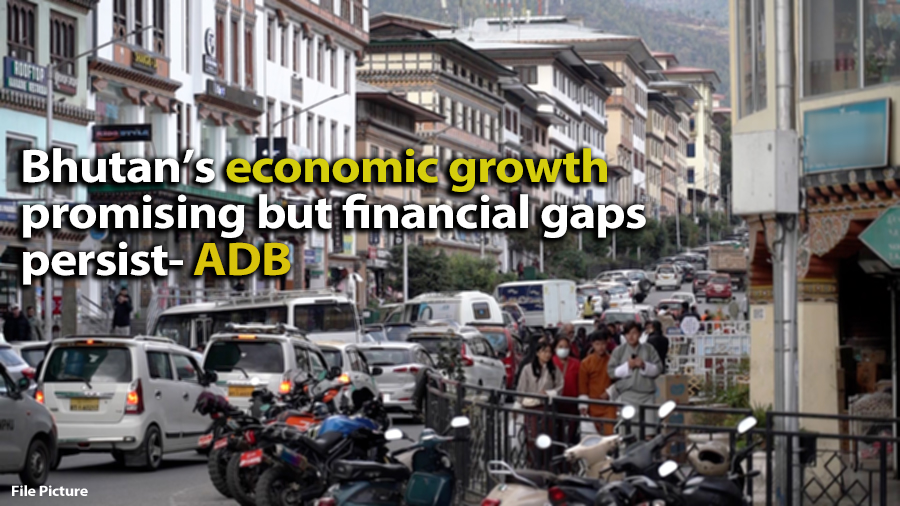 The Asian Development Bank projected that the country’s economy will grow at 8.5 per cent this year. However, in its outlook report, the ADB says the country needs to strengthen its financial sector to achieve this growth. According to the report, currently, the country’s financial system lacks depth and inclusivity. Limited access to credit, especially for small businesses and rural communities, is holding back broader participation in the economy.
The Asian Development Bank projected that the country’s economy will grow at 8.5 per cent this year. However, in its outlook report, the ADB says the country needs to strengthen its financial sector to achieve this growth. According to the report, currently, the country’s financial system lacks depth and inclusivity. Limited access to credit, especially for small businesses and rural communities, is holding back broader participation in the economy.
The ADB report suggests that, right now, a lot of potential is being left on the table, especially for small businesses and rural communities. The report highlights risks like concentrated lending and uneven digital banking, which could threaten long-term stability.
The ADB says most bank lending is still concentrated in just a few sectors like tourism and housing, areas vulnerable to demand shifts.
Meanwhile, credit to other parts of the economy has been slow, with many entrepreneurs highlighting banks’ hesitance to support new or unfamiliar ventures.
Non-performing loans (NPL) have fallen slightly from 11.1 per cent in mid-2022 to 9.5 per cent in mid-2023. However, the report notes that many of these loans remain under deferment, a result of the economic hit Bhutan took during the COVID-19 pandemic. So, the report suggests that the drop in non-performing loans may not accurately reflect a genuine economic recovery.
The report talks about how while Bhutan is making progress in digital banking, it’s not reaching everyone equally. According to the living standards survey report, in urban areas, over 75 per cent of people use mobile banking. However, in rural areas, it’s less than half that. The gap in ATM access is just as wide.
Moreover, ADB’s report highlights Bhutan’s dependence on hydropower exports and public sector spending as further vulnerabilities.
A stronger financial system would give the government more tools to respond to economic shocks, such as inflation or natural disasters. This comes as Bhutan seeks to diversify its economy beyond hydropower and agriculture.
The growth is real, but so are the gaps. To support inclusive and sustained growth, the report recommends broadening access to credit, building a robust financial infrastructure, embracing advanced digital financing tools and diversifying the financial ecosystem.
Karma Samten Wangda
Edited by Phub Gyem









